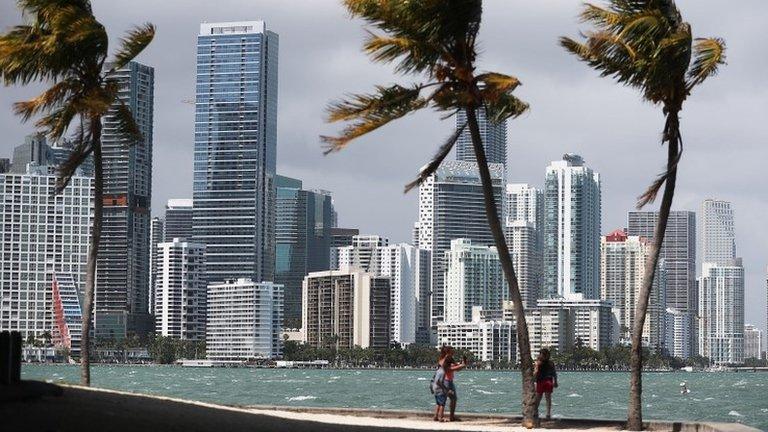Guatemala election: Former First Lady Sandra Torres wins first round
- Published
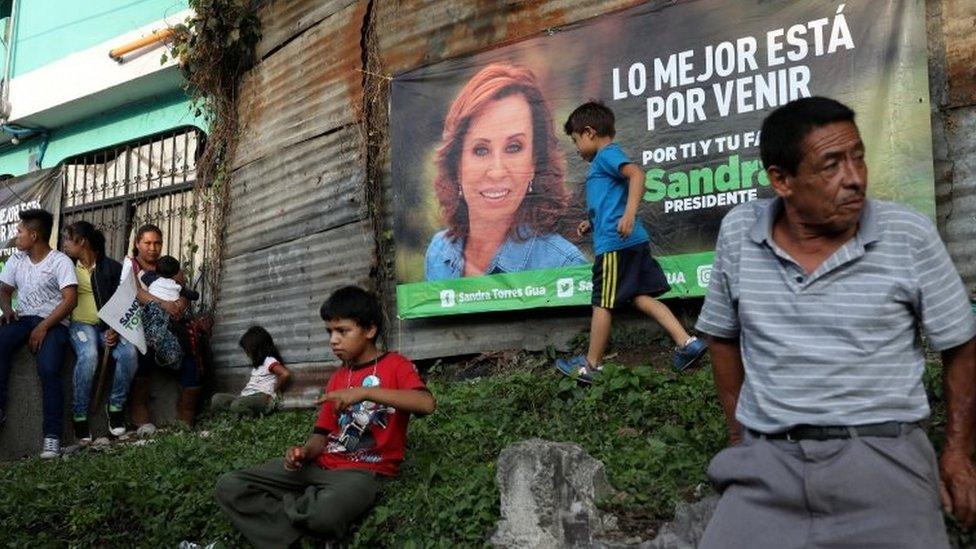
Sandra Torres led most polls in the run up to Sunday's vote
Former First Lady Sandra Torres has taken the lead in the first round of Guatemala's presidential elections, preliminary results show.
She now faces her nearest conservative rival, Alejandro Giammattei, in a run-off vote in August.
With 98% of polling stations tallied, Ms Torres took 25.70% of the vote, while Mr Giammattei got 13.92%.
The next president will be under pressure to tackle gang violence and poverty, which dominated campaigning.
Ms Torres said on Monday she would work to build alliances to win the run-off, which is due to be held on 11 August.
"The country needs unity: to unite the countryside with the city, to unite the workers with the business community, and also in civil society, in all sectors," the centre-left candidate told reporters.
Around 40,000 police officers were on duty during voting on Sunday amid fears of violence.
In San Jorge in the east of the country, voting was suspended after death threats were made against electoral authorities, according to Interior Minister Enrique Degenhart.
Nineteen candidates were running to succeed President Jimmy Morales.
Thelma Aldana, the former attorney-general, and Zury Ríos, the daughter of the late military ruler Efraín Ríos Montt, were barred from running for the presidency. Another candidate was arrested in Miami on suspicion of conspiring to import cocaine to the US.
8.1 millioneligible voters choose
1President and vice-president
160Members of Congress
340Mayors
20Members of the Central American Parliament
The president is elected by absolute majority for a single four-year term. Under Guatemalan law, current President Jimmy Morales cannot stand for a second term.
Who is Sandra Torres?
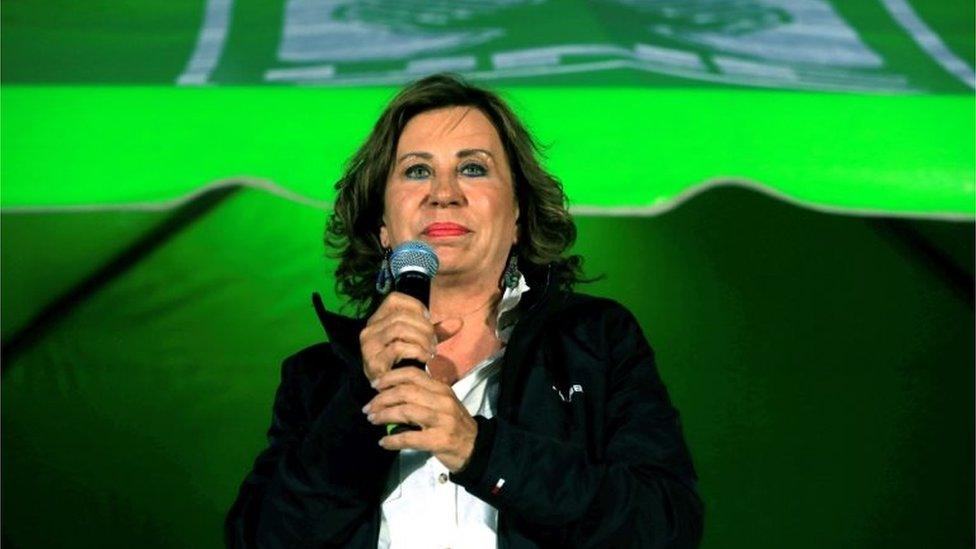
Sandra Torres divorced her husband to be able to run for president
Sandra Torres, 63, failed in her two previous attempts to be elected president, but the most recent opinion polls put her in the lead.
Ms Torres was married to Álvaro Colom, who governed Guatemala from 2008 to 2012, and who is currently under investigation for alleged fraud.
She divorced him in 2011 in order to bypass a law which banned close relatives of the president from succeeding him.
In 2011, her candidacy was rejected by the Constitutional Court, but she was allowed to run in 2015. That time, she had enough votes to get her into the second round where she was defeated by Jimmy Morales by a large margin of almost 35 percentage points.
Ms Torres is running for the social-democratic National Unity of Hope party (UNE).
She and her party are under investigation for alleged illegal campaign financing during the last election, which she has denied.
Ms Torres says she will provide "comprehensive solutions like development, fight against poverty and job opportunities" to try to convince Guatemalans to stay in the country rather than migrating to the United States.
The former First Lady has also pledged to deploy troops in Guatemala's streets to crack down on drug gangs.
Who is Alejandro Giammattei, the runner up?
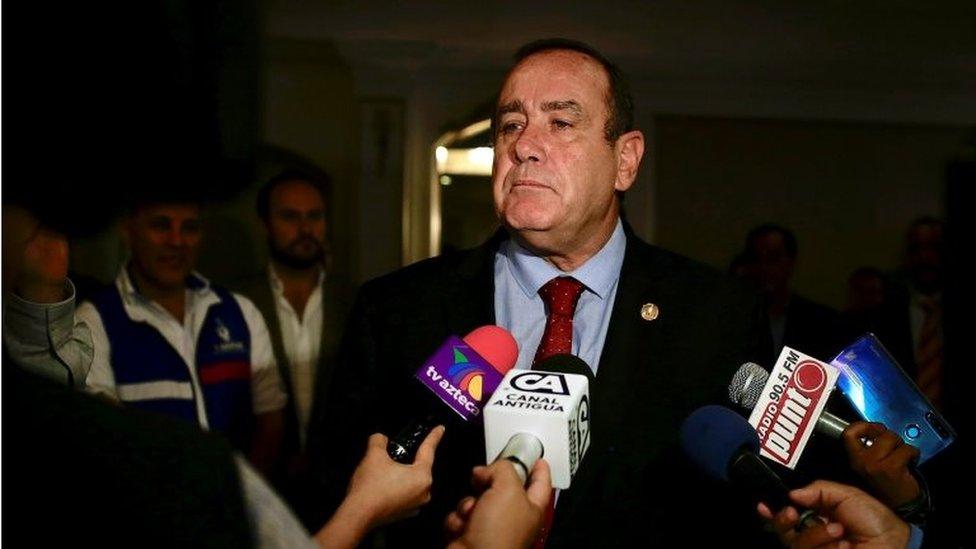
Alejandro Giammattei was once in charge of the Guatemalan prison service
The 63-year-old candidate is standing for the right-wing Vamos (Let's Go) party and this is his fourth attempt at becoming president. Each time, he has run for a different party.
Mr Giammattei is a trained doctor who was named director of the Guatemalan prison system in 2006.
That same year, he led a controversial operation to take control of the Pavón prison, which had been run by inmates for a decade. Seven inmates died during the raids by the security forces.
Mr Giammattei was among eight people accused over the incident and after spending 10 months in pre-trial detention, he was acquitted due to lack of evidence.
He came fourth in the 2015 election.
He says that if he is elected, he will build "a wall of prosperity" to keep Guatemalans from migrating to the US.
In order to lessen the disparity between the rich and the poor, he wants to attract more foreign investment to Guatemala by strengthening the protections granted to private property.
What are the main issues?
Guatemalans have told pollsters that their top concern is government corruption.
Four years after large-scale anti-corruption protests forced then-President Otto Pérez Molina to resign, many Guatemalans feel not enough has been done by the government of Jimmy Morales to combat corruption.
Mr Morales caused outrage when he tried to kick the UN-backed anti-corruption commission out of Guatemala when it investigated him over alleged corruption.
The most vocal supporter for the commission, known as CICIG by its Spanish initials, has been Thelma Aldana, who as Guatemala's attorney general has worked closely with it. Before she was barred, she said she would strengthen CICIG and make government more efficient and transparent.
- Published7 June 2019
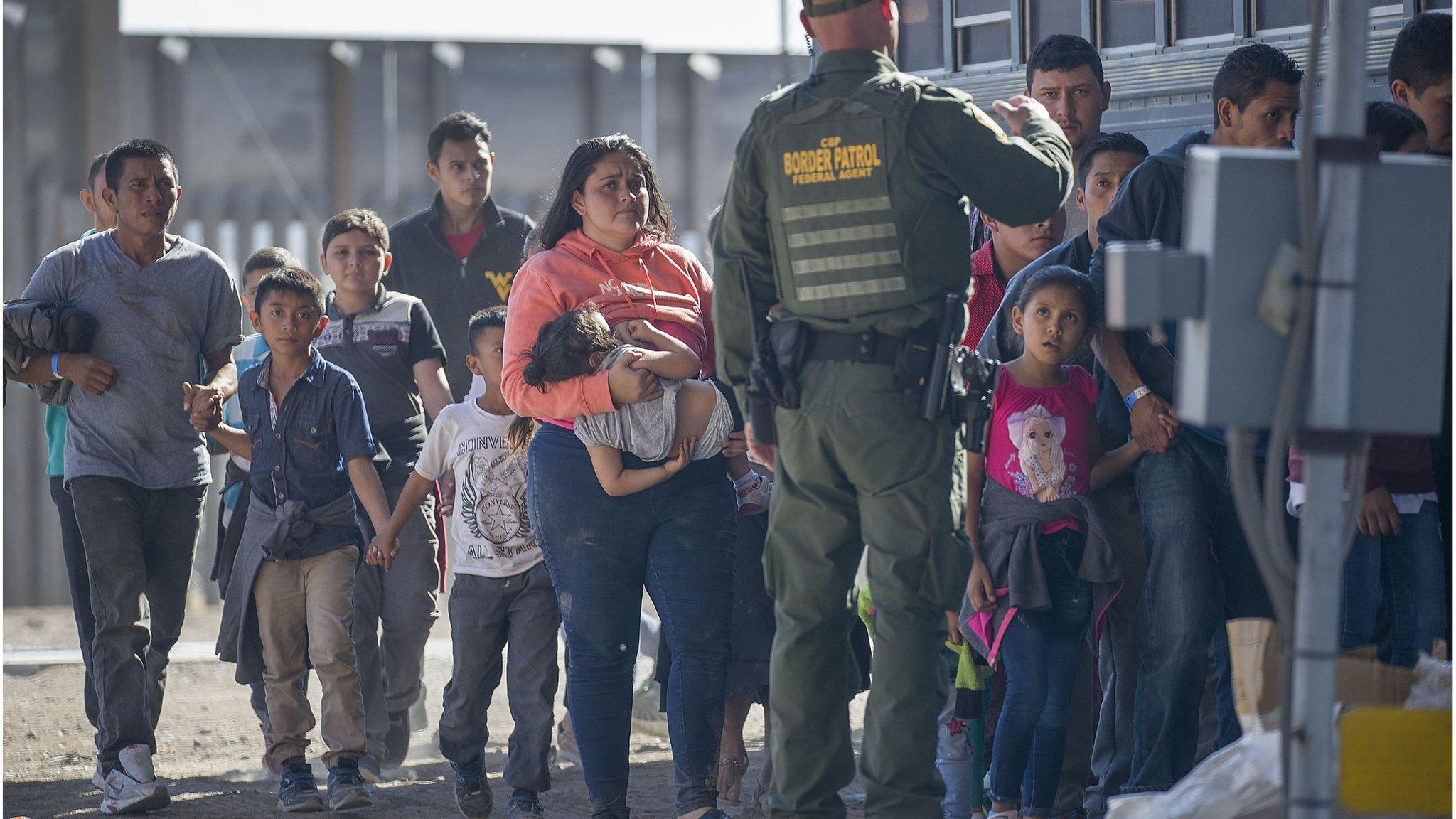
- Published14 May 2019
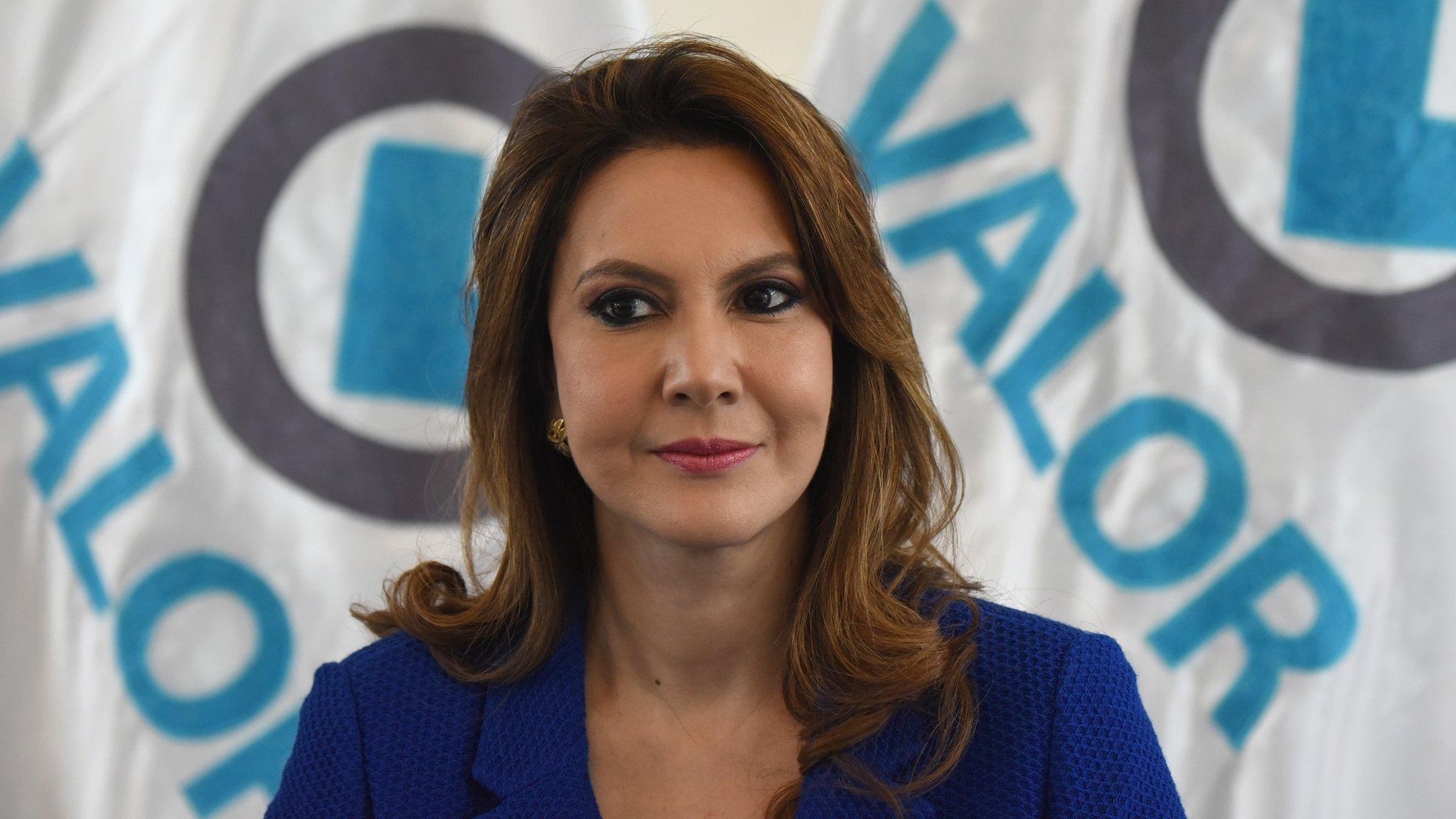
- Published8 May 2019
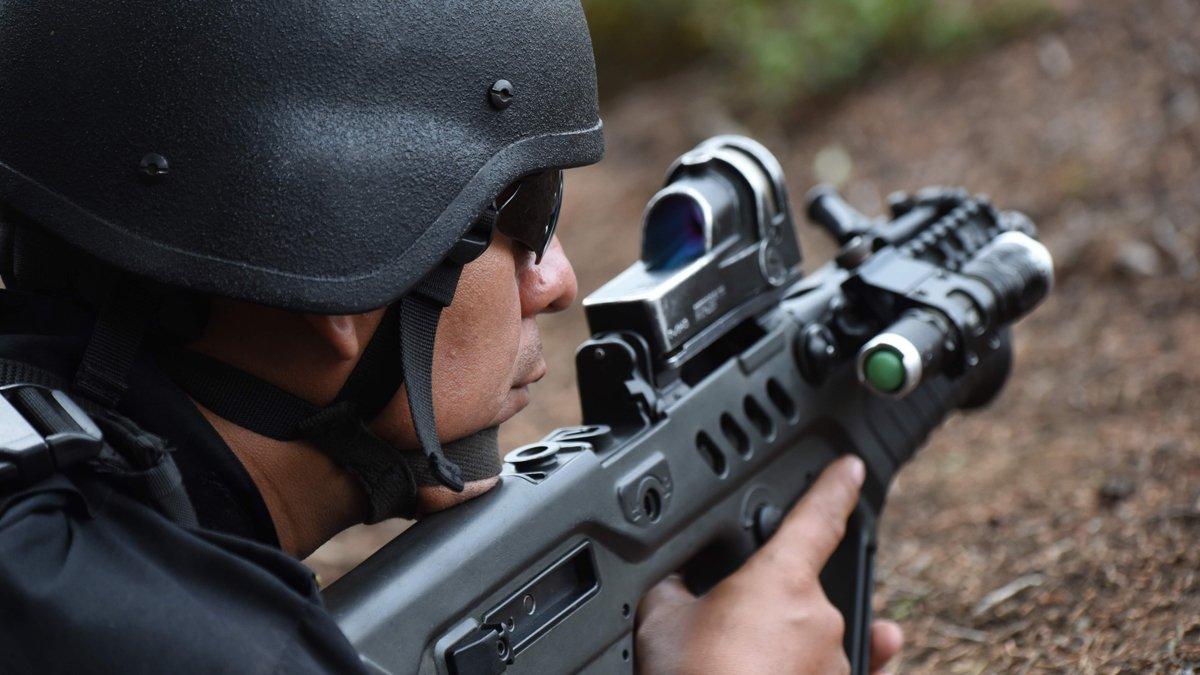
- Published18 April 2019
